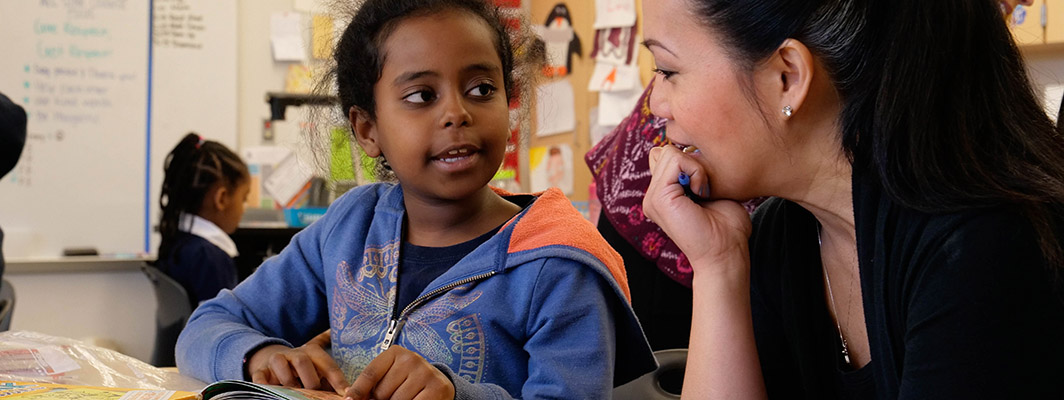
May 2, 2019 | By Lauren Acree
Educators welcome a diverse set of students into their classrooms daily. Every student brings a unique background with their own set of experiences, interests, strengths, and challenges. An educator’s role is to understand this variability and account for it while teaching complex curriculum in a way that each student feels supported and successful. Accomplishing this is not easy. This is why understanding learner variability is key for educators—it empowers them to make intentional choices designed for each learner.
The Friday Institute for Educational Innovation and Digital Promise Global’s Learner Variability Project collaborated to create a set of micro-credentials for educators as they design learning experiences specifically for each of their diverse learners. Through the Learner Variability micro-credentials, teachers identify one student to work with and assess that student’s strengths and challenges as they relate to the micro-credential’s focus area. Using the student’s strengths and input, the teacher identifies a set of strategies to support the student’s needs and implements them, providing evidence of the strategies in action. Both the student and teacher then reflect on the experience. Our goals for the micro-credentials were to urge educators to consider the specific ways their learners varied, to focus on strengths in a system that too often focuses on students’ deficits, and to encourage educators to partner with their students.
While we had a purpose for the micro-credentials, we also wanted to understand the extent to which we were reaching those goals. So, we wondered: In what ways are educators supporting the specific needs of their learners through these micro-credentials? By analyzing the artifacts and narratives that educators presented in their submission, we sought to share specific strategies educators use to support each of their learners.
Our team identified five themes in our review of the micro-credential submissions:
Each of the five themes—Teacher as Researcher, Using Empathy, Leveraging Peers, Student/Teacher Metacognition, and Student Ownership—represents a set of strategies educators took to support learner variability in their classroom. Successful teachers considered their students’ individual learning strengths instead of viewing students as part of a group and took a variety of actions to support each of them.
The Learner Variability micro-credentials ask educators to better understand students as learners. The micro-credentials support teachers as they partner with students in creating learning environments that address learners’ needs, leverage their strengths, and empower students to reflect and adjust as needed. We found that micro-credentials are one important way we can ultimately build teacher capacity to meet the needs of all learners.
To read more about the Learner Variability micro-credentials and what we learned in our review, you can read our full paper, Supporting Learner Variability in the Classroom Through Micro-credentials. For more on learner variability, visit the Learner Variability Project website.
By Dr. Julio Vazquez and Dr. Kyle Dunbar
By Pati Ruiz and Yenda Prado